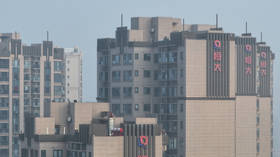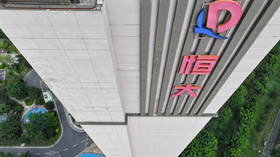Debt-ridden Chinese developer Evergrande liquidated

A Hong Kong court on Monday ordered the liquidation of property giant China Evergrande Group, the world’s most indebted developer, after an 18-month long hearing.
Judge Linda Chan delivered the ruling, saying “it is time for the court to say enough is enough” after the troubled developer repeatedly failed to come up with a convincing plan to restructure its debts. The company had been given seven extensions since court proceedings began in 2022.
The real estate firm, which first ran into trouble refinancing its debt in 2020, now faces 2.39 trillion yuan ($333 billion) of total liabilities, a figure that significantly outweigh its 1.74 trillion yuan ($240 billion) in assets. Most of the latter are in mainland China, which is a different jurisdiction than Hong Kong.
The liquidation petition was lodged by Top Shine in June 2022, an investor in Evergrande unit Fangchebao, which claimed the developer had failed to honor an agreement to repurchase shares it had bought in the subsidiary.
Evergrande sent China’s struggling property sector into a tailspin when it defaulted on its debt in 2021. The company’s troubles affected China’s entire real estate market, with companies accounting for 40% of home sales defaulting on their debt obligations since mid-2021, including Kaisa Group and Shimao Group Holdings. The liquidation ruling will likely further hit the country’s capital and property markets, experts say.
Following Monday’s decision, the judge appointed Alvarez & Marsal as the liquidator, which is expected to take control of Evergrande’s assets, negotiate with creditors on debt restructuring, and take over management of the company.
“Our priority is to see as much of the business as possible retained, restructured, and remain operational. We will pursue a structured approach to preserve and return value to the creditors and other stakeholders,” Reuters quoted Tiffany Wong, managing director of Alvarez & Marsal, as saying after the appointment.
Evergrande had been working on a $23 billion debt revamp plan, but it fell apart in September when the company announced its founder, billionaire Hui Ka Yan, was under investigation for suspected crimes.
“It is not an end but the beginning of the prolonged process of liquidation, which will make Evergrande’s daily operations even harder,” said Gary Ng, senior economist at Natixis. “As most of Evergrande’s assets are in mainland China, there are uncertainties about how the creditors can seize the assets and the repayment rank of offshore bondholders, and situation can be even worse for shareholders.”
Evergrande acting CEO Siu Shawn told Chinese media that the company would ensure home-building projects will still be delivered despite the liquidation order. The ruling will not affect the operations of Evergrande’s onshore and offshore units, he added.
The company’s stock fell by more than 20% in Hong Kong after the liquidation ruling was announced. Trading in the shares has now been suspended.
For more stories on economy & finance visit RT's business section














